#AlexandreI
Text




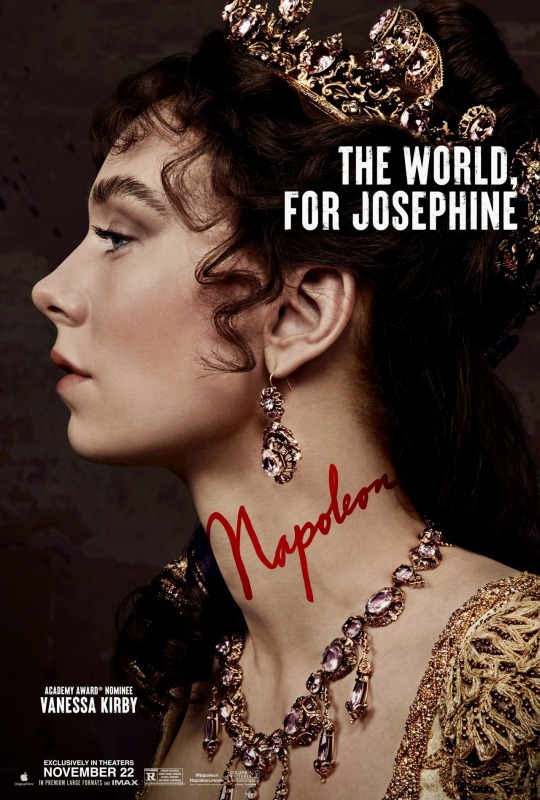
"Napoléon" biopic de Ridley Scott - sur la vie de l'Empereur Napoléon Bonaparte (1769-1804) - avecJoaquin Phoenix, Vanessa Kirby, Tahar Rahim, Rupert Everett, Paul Rhys, Matthew Needham, Edouard Philipponnat, Mark Bonnar, et Catherine Walker, décembre 2023.
#films#Biopic#hommage#Paris#xviiie siècle#RevolutionFrançaise#NapoleonI#Josephine#Bonaparte#Beauharnais#MarieAntoinette#LouisXVI#LouisXVIII#Robespierre#Barras#Talleyrand#AlexandreI#Davout#Junot#Wellington#Scott#Phoenix#Kirby#Rahim#Everett#Rhys#Needham#Philipponnat#Bonnar#Walker
1 note
·
View note
Text
The master, pale and wan, his hair unkempt...
had chanced to come forth from the chamber where
he'd armed his disputatious propositions
and finished all the corpus of his Logic
... His darkened brow evinced
the midnight lamp; his skin clung to the bones
as thin as parchment; in his hands, starved wanness
impressed the joints. Truly, the work of study
afflicts the limbs and outer flesh with hunger.
Aristotle's first appearance in the Alexandreis of Walter of Châtillon, transl. by David Townsend, I.ll.74-84.
#when you're so hard at scholarly work that you begin to turn into a book#alexandreis#walter of châtillon#readings
0 notes
Text
just saw a tiktok of all the spanish girls saying their names for the olympics… database? and the ping pong going on in the background is KILLING me.
the way laia alexandrei’s is just 2 quiet bounces of the ball??
and alexia going “more slow? slowly?” instead of saying her name twice 💀 i love them.
99 notes
·
View notes
Note
Vlad had a sister? That’s certainly something I was unaware of! Is there anything known about her? Also for clarification, did Vlad III have his 2 brothers and sister from the same mother and father and Vlad IV was the only half sibling?
Vlad had indeed a sister but we don't know much about her, tho there is a little reading about her and her descendeds called "Gheorghe I. MAREŞ „Urmaşii dâmboviţeni ai Alexandrei, sora lui Vlad Ţepeş"
She was mentinon by Radu Serban in a document from 1604 January 20:
"And then gave the late Vladu voivode Tepes up
the aforementioned dowry villages to his sister, Alișandrei,
great-grandmother of Danciul the Lazarus and Voinea
the viceroy, up to the ancestors of the reign's servant
of my liege."
Here is her acestry:
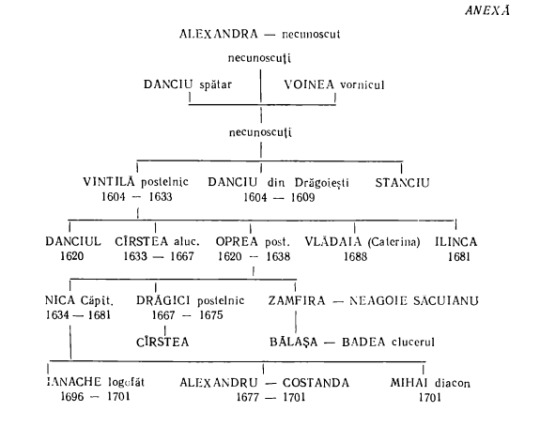
Kinda hard to say if they were full brothers but Mircea and Vlad were very close in age (Mircea was 1 or 2 years older) Radu was a lot younger (around 5-8 years younger than Vlad) but those age gusess are made by when they were first time mention in a document.
There wasn't anything about Vlad Dracul remarrying in that time so they were most like full broathers (their mothers is also unkown, just guess out there in the wilds of the internet)
28 notes
·
View notes
Text
Little Red Riding Hood and Alexander the Great: How Little Red Succeeded Where Alexander Failed
tl;dr: Little Red Riding Hood succeeds where Alexander the Great fails because she strays from the path and he, despite others' pleas, does not. LRRH enters and emerges from the Underworld with hard-won knowledge. Alexander wants to do this, but does not.
Note: While I love history, Alexander the Great isn't actually a period or person I've studied. Instead, I'll be relying on the fictionalized epic version of his life, The Alexandreis by Walter of Châtillon, from the 12th century. If you enjoy epics, I highly recommend checking it out.
Note the Second: For the Little Red Riding Hood portions, I'm relying on my own analysis and on the many, many texts I've read about fairy tales and mythology. These are more properly references than works cited, however, and I am not listing them all here (if only because it'll take me a bit to remember them all). I will say that the one book I have referred to is The Trials and Tribulations of Little Red Riding Hood, edited by the incredible Jack Zipes. This book discusses how Little Red Riding Hood has been co-opted to define and control feminine sexuality. (It says a lot more than that and the prologue/epilogues are definitely worth reading! The text is a series of LRRH stories, arranged chronologically).
Little Red Riding Hood
In the earliest stories, the ones before Perrault jotted down his version, Little Red Riding Hood escapes. The wolf tells her to remove all of her clothing piece-by-piece and climb into bed with him. Once there, she realizes the danger, tricks him, and runs away.
After Perrault, though, most versions of the story have Little Red Riding Hood consumed. The wolf swallows her down. In Perrault that was the end. She died. Later versions, though, notably the Grimm version, have her saved, usually by a man.
I will make references to multiple versions, but all will hit the following beats: Little Red Riding Hood has a cap or cape of red or gold, is sent by her mother to bring food to her grandmother in the woods, meets the wolf, is delayed or chooses the longer route, finds the wolf in her grandmother's place, realizes the danger too late, is eaten, and is saved.
This is not the "right" or "true" version of the story. These are just the most common beats, I believe, and the ones most people would hit if asked to tell the story from memory.
My other important caveat about how I treat this story is that the comparisons and analyses I make are not meant to suggest fundamental truths or "real meanings" of the story. As Zipes points out, comparisons to ancient beliefs and rituals are possible, but the recognizable story is too recent for them to be the actual origins. (On a side note, do read Tehrani).
Little Red Riding Hood is a highly sexualized story. I want to focus on how that sexualization occurs. In the story, Little Red is on the cusp of maturity. Some even argue that her red cape is a symbol of menstrual blood. She is in-between woman and child and she goes into the woods.
The woods, in fairy tales, is a place where protagonists meet monsters and magic. It is the realm of the unknown where demons lurk, witches practice, and transformation takes hold. The woods is where characters lose and find themselves. No one can travel in without exiting changed.
Little Red, still innocent as a child, but now realizing that there is something she doesn't know, goes into the realm of the unknown and meets a monster. Some interpretations portray Little Red's interactions as a seduction, even a mutual seduction, and, eventually, a sexual encounter or rape. In the interpretations I like the least (but that are horribly well supported, as Zipes also points out), Little Red flirts with the wolf and pays for this promiscuity by being eaten, which can be a euphemism for rape.
While in the woods, Little Red either strays from the path to gather flowers or takes a longer path (either pins or needles; these paths also deliberately suggest ignorance and knowledge). This allows the wolf to reach her grandmother first. The important takeaway is that Little Red does not take the most direct path through the woods. She dallies. She strays. She explores.
Little Red Riding Hood moves off the path and goes into the woods. She is given the choice between the safe path and the winding one, the safe path and the field of flowers. Little Red Riding Hood has a choice. She can cling to ignorance and remain safe or she can abandon safety and seek knowledge and new experiences.
The woods are full of both beautiful (flowers) and terrible (wolves) things.
Her explorations also give the wolf time and therefore create the circumstances in which she descends to the underworld.
At its most basic, a descent into the underworld is dying. Most 'descents' imply an 'ascent' of some sort, though. Little Red ascends when she emerges from the wolf's belly. This experience changes her. In some versions of the story, this change is signified by her and her grandmother killing a second wolf or by her grandmother turning the pelt of the first wolf into a new cape for Little Red. No longer does she wear the mark of her innocence; she wears her hard-won knowledge and experience.
Little Red Riding Hood is the story of innocence and experience, of death and renewal, of dying and coming back to life changed and burdened with new knowledge.
Another way to interpret Little Red Riding Hood is as a solar myth. Little Red is the sun who is consumed by winter and restored, somewhat violently, as spring. The interesting connection is that some solar myths are also concerned with known and unknown. Little Red begins as innocence--the young hero, youthful king--untried and eager. Then she passes into the unknown where she is killed. This is the descent into the underworld. It is happens in stages--entering the woods, entering the cabin, confronting her death, dying. This is also her descent into knowledge. She knows what it means to die now. Then, when the woodcutter comes and cuts her free, she is rebirthed. She is spring come again, but she is not the same girl she was. She knows death now. She will never be the same.
Sondheim captures all of this quite well in Into the Woods when Little Red sings, "I Know Things Now." She describes her consumption as, "And he swallowed me down / Down a dark, slimy path / Where lie secrets that I never want to know." And the aftermath as, "And I know things now / Many valuable things / That I hadn't known before."
Little Red engaged with the unknown--she talked with the wolf, she strayed from the path or took a longer route, was eaten--and emerged new, different, and wise in ways she wasn't before. She moved from innocence and ignorance into knowledge and experience.
Alexander the Great
In the Alexandreis, Alexander the Great is a great, terrible, and insatiable conqueror. Late in the epic, a goddess warns the gods of Alexander with the following lines:
And if the Fates
should lend his sails kind winds, he plans to seek
the Nile's source, and lay siege to Paradise.
Look to yourself, or else he'll not permit
the hidden reaches of the Antipodes
or deep Chaos itself, to go unscathed,
but strive to gaze upon the other sun.
This is not an exaggeration. Throughout the epic, Alexander always sets his sights on more and talks about giving out judgements alongside Jove and sharing knowledge of the world beyond with his men. He constantly seeks out challenges "worthy" of him.
When faced with Porus, Alexander exclaims,
"Here, at last,
is danger worthy of amazement, and
my spirit's math. One deed I must achieve
against both monsters and illustrious men."
Alexander measures himself by glory won, but he isn't only chasing glory. He continuously seeks out the new. He wants new challenges and lands. He wants to uncover the mysteries and, like a new Prometheus, share them out.
The Nile's source was, at the time of the story, one of the great mysteries. Some thought the source of the Nile was in the realm of the gods. The Nile was fed by the gods or flew up into the heavens. The source was both unknown and not something to be known. To some, the Nile itself was like a god and searching out the source was to deliberately intrude on the heavenly realm.
The Antipodes refers to the opposite side of the world, a land of reversal. It, also, was seen as beyond humanity's capacity to find or explore. Additionally, people weren't supposed to go there because of its relation to the divine.
The "other sun" refers to the lands of the afterlife.
Alexander wants to hunt down and discover the great, all-but-forbidden mysteries of the world and lay them bare for all to know. He wants to try himself against new challenges to prove his mastery of the world.
He goes about this the only way he knows how: beating everyone else up. Every victory increases his hunger for another victory.
Repeatedly people warn him to stop or to just pause, but he refuses. He's told that he'll make a good corpse for scavengers. He's warned that loss is one day inevitable and so he should prepare. He's begged to slow down, if not for himself, then for the men following him.
Alexander always refuses. To the last he says,
"Not to provoke the ill will of the gods,
the world's too narrow, the breadth of the earth
is insufficient for its only lord.
But when I've passed beyond this conquered universe,
I'll undertake to open to my followers
another world. The strong man finds no goal
insuperable. I hasten now to penetrate
the shores of the Antipodes, and view
the other Nature. Though you begrudge your arms,
I cannot fail in duty to myself.
I'll think the entire world my theater,
and move my troops throughout its length, ennobling
ignoble lands and peoples by my wars."
Later, near his death, he says, "The ancients teach us that more worlds exist; / alas, that I have yet to vanquish one!"
For Alexander, knowing is mastering through war. He cannot explore a new land; he must conquer it.
He has one path through life and, despite multiple people both friend and foe urging him to try something, anything else, he never strays. Then he is poisoned and, though he boasts about being called to Olympus to reign, he dies and that is all of his story.
How and Why Little Red Riding Hood Succeeded where Alexander the Great Failed
Alexander wanted the unknown. He sought it out relentlessly throughout his life. The problem is that he never took the time to explore, to talk with wolves, to gather flowers, or to take the longer route. He had one path through life--victory in war--and stayed firmly upon it. He refused all requests to change. Alexander could have marched right through the afterlife and emerged unsatisfied and knowing nothing new. He could slay Cerberus and not learn a single thing because he didn't take time. He never reflected except on his desires for more glory and the insufficiency of the world to provide challenges. No one can descend into the underworld if they are unwilling to be changed. The descent requires change.
In Inanna and one version of Little Red Riding Hood, the heroine sheds (and destroys) her clothing piece by piece before dying. She is humbled and pared down to her core self before, eventually, being saved. No one can go into the realm of death without losing something and becoming something new. Alexander, though, would never part with any symbol of his glory.
Alexander wanted to know every mystery of the world, but failed to learn them because he never strayed from his path of conquest. He took the shortest and most direct route through the unknown and then despaired over not meeting monsters worth his mettle. But monsters don't lurk on the path. They're in the shadows.
And so Alexander never gains the secret knowledge he chased--the same secret knowledge Little Red so unwillingly gained. He remains forever the youthful king, while Little Red dons the gray pelt of the wolf and returns home from the woods with secrets and knowledge, both unwanted and valuable. In other words, despite his best efforts, Alexander remains forever in ignorance because he never humbled himself or tried another method for exploring and learning about the mysteries of the world. In contrast, Little Red explores and engages with the unknown and so passes from ignorance into knowledge.
#fairy tales#little red riding hood#alexander the great#lunchtime ramble#lrrh#meta#descent into the underworld
16 notes
·
View notes
Text
speaking of .........that man..... i have terrible news i actually really like the alexandreis i am finding it very clear and beautiful though perhaps a matter of translation. aristotle turns to look directly at camera

2 notes
·
View notes
Text
(020) Die drei ??? und die flammende Spur
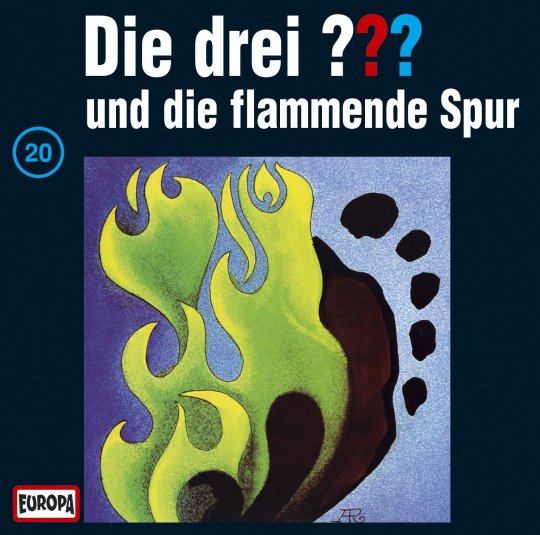
Klappentext
Nur selten verlässt der alte Töpfer, genannt der Potter, sein Haus in Rocky Beach. Plötzlich verschwindet er, obwohl er seine Tochter, Mrs. Dobson, und seinen Enkel Tom zu Besuch erwartet. Ist eine zufällige, kurze Begegnung mit den zwei etwas undurchsichtigen fremden Männern der Grund? Ein weiterer verdächtiger Mann, angeblich ein Sportfischer, hat offenbar ebenfalls die Finger in dieser geheimnisvollen Sache. Alle sind sie hinter dem Symbol eines zweiköpfigen Adlers her - so einem Adler, wie der Potter um den Hals hängen hat …
Veröffentlichungshistorie
Buch (Random House): 015, 1971, M. V. Carey, The Mystery of the Flaming Footprints
Buch (Kosmos): 022, 1979, Leonore Puschert (aus dem Amerikanischen übertragen)
Hörspiel (Europa): 020, 1980
⁉️ Allgemein
Handlungsort
Rocky Beach
Kategorie
Spuk, Diebstahl
Figuren
Justus Jonas
Peter Shaw
Bob Andrews
Mr. Alexander Potter / Alexandrei Lukien, Töpfer und Freund der Familie Dumitro
Tante Mathilda
Onkel Titus (keine Sprechrolle)
Tom Dobson, Sohn von Mrs. Dobson
Mrs. Eloise Dobson, Mutter von Tom und Tochter von Mr. Potter
Mr. McDermot, Polizeibeamter
Mr. Holzer, Immobilienmakler (keine Sprechrolle)
Mr. Morton, Chauffeur
Mr. Mihai Eftimin
Dr. Samuel Radulescu, vom Nationalmuseum in Bukarest
Mr. Farrier, Dieb (😈)
Hauptkommissar Reynolds
🏖 Rocky Beach Universum
Orte
Wilshire, ein Bezirk von Los Angeles
2901 Wilshire Boulevard
Einrichtungen
Schrottplatz
Hilltop House, von dort kann man das Potter-Haus sehen
Pension Sea Breeze
ACME Fotokopiergeräte, sitzen im 2901 Wilshire Boulevard
Personalvermittlung Jensen, sitzen im 2901 Wilshire Boulevard
Rumänische Handelskammer, sitzen im 2901 Wilshire Boulevard
Sherman Verlag, sitzen im 2901 Wilshire Boulevard
Bibliothek
Sonstiges
Dumitro ist ein rumänisches Grafengeschlecht, die bei einem Schlossbrand 1925 ums Leben gekommen sind. Nikolai Dumitro ist der Sohn des Grafen und mit Alexandrei Lukien befreundet
Los Angeles Times, Zeitung
Chicago Tribune, Zeitung
Daily News, Zeitung
🛼 Sonstiges
Lustige Dialoge
Mr. Farrier: "Du hast aber eine schlimme Beule."
Justus: "Ich bin hingefallen."
Mr. Farrier: "Naja, dann will ich mal."
Bob: "Mein Vater hat so einen Prachtschinken."
Mr. Farrier: "Wollen Sie vielleicht, dass sich Ihr Tom an einer meiner Kugeln aus meiner Waffe verletzt?"
*Es scheppert laut*
Mrs. Dobson: "Himmel! Das war die große Vase in der Deele."
Justus (komplett desinteressiert): "Schade drum."
Justus: "Dr. Radulescu–"
Hauptkommissar Reynolds: "Sei still, Justus Jonas."
Hauptkommissar Reynolds: "Sagen Sie mal, haben Sie damit auf die Kinder geschossen?"
Mr. Potter: "Um Himmels Willen! Ich habe weit, weit daneben geschossen, um sie nicht zu treffen. Ich wollte diesen neugierigen Burschen nur von Hilltop Haus vertreiben. Aber vertreiben Sie mal einen Justus Jonas; das ist so gut wie unmöglich. Selbst eine solche Donnerbüchse schafft das nicht."
Hauptkommissar Reynolds: "Hahaha, hör sich das einer an!"
Peter: "Also wer Justus verjagen will, muss schon mit Kanonen schießen!"
Justus: "Auch das langt nicht!
Phrasenschwein
Breaking the Law!
Justus bricht das Gesetzt.
🏳️🌈 Queer/diversity read
Shippy moments
-
Diversity, Political Correctness and Feminism
"Beide sahen aus wie Ausländer."
Mihai Eftimin und Dr. Samuel Radulescu haben einen fragwürdigen Akzent
#die drei fragezeichen#und die flammende spur#folge 020#020#M. V. Carey#rocky beach#spuk#diebstahl#breaking the law
17 notes
·
View notes
Text
Yasuharu Takanashi - Saigo no Mahou
Cineva zicea că doar trăind te poți regenera. S-ar putea totuși ca manifestul Alexandrei și Georgianei din Lupeni sau Alexiei din Șura Mare să se regenereze și așa, deși pentru ele e oricum foarte nedrept. Cumva noi încă trăind, mai degrabă și prin muzică decât prin vreun haștag parteneriatstrategic, reîntâlnirea cu gașca din Fairy Tail a fost precum un mesaj franc în care pur și simplu eram…
0 notes
Text
I was finally able to buy "Alexandreis" by Colker but…
Good day I’m Elena and thanks to be here on Alessandro III di Macedonia- Your Source about Alexander the Great and Hellenism!
I was finally able to buy Alexandreis by Marvin L. Colker (Editrice Antenore, 1978) but…
Collana: Editrice Antenore, Thesaurus MundiA cura di: Malvin L. ColkerIn libreria dal 01/01/1978ISBN: 978-8884551474pp. XLVI-538
I wanted it for a long time because when it was…

View On WordPress
0 notes
Text
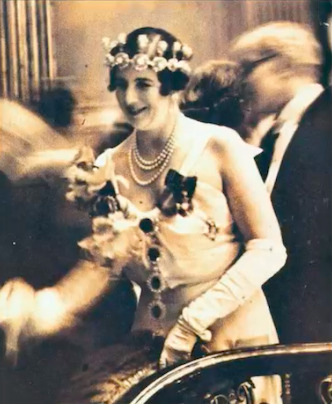


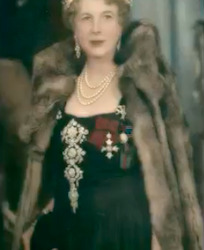


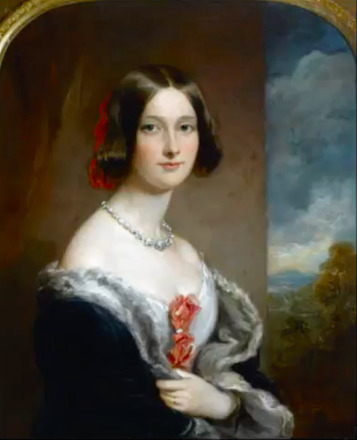
"Edith Vane-Tempest-Stewart, Marchioness of Londonberry" wearing her "Amethyst Tiara Siberian" given by Tsar Alexander I of Russia as a stomacher and wearing her "Diamond Stomacher" (1927) made by R. & S. Garrard nd Co (1854), and "Frances Anne Emily, Marchioness of Londonberry" by Sir Thomas Lawrence (1827-28) and by Francis Grant (1820-30) presented in “A History of Jewellery: Bedazzled (part 5: 19th Century)” by Beatriz Chadour-Sampson - International Jewellery Historian and Author - for the V&A Academy online, march 2024.
#conferences#peinture#inspirations bijoux#bijoux de tête#diamant#emathyste#style#Londonberry#VaneTempestStewart#AlexandreIer#Garrard#Lawrence#Grant#ChadourSampson#V&AAcademy#Victoria&AlbertMuseum
43 notes
·
View notes
Text



From the introduction to David Townsend's translation of Alexandreis by Walter of Châtillon.
0 notes
Text
Deputatul Silviu Feodor: Felicitări, Alexandra Condrat pentru „Narcisistul”!
„Narcisistul” – este al doilea roman al Alexandrei CONDRAT din Jurilovca, jud. Tulcea.
„Lorena Ghinea [din romanul „Narcisistul”] este o tânără ce a avut ghinionul de a intra în anturajul lui Laur Dragomir, un narcisist escroc, care prin acțiunile sale o face extrem de nefericită. Fata se lasă atrasă adânc în universul degradant al lui Laur, plin de minciuni și înșelătorii.
Văzând că sora ei nu…

View On WordPress
0 notes
Photo

Curand incep petrecerile, asa ca ne-am gandit ca in colectia noua de vara sa avem diverse look-uri de la casual si pana la cool-cocktail-glam-evening! In fotografiile realizate de Cristina sunt piesele din paiete argintii cu doua fete: fusta lunga ampla, fusta mini si rochia #mod, toate asortate cu #cowboyboots din garderoba personala a Alexandrei. Make-up realizat de @adriana_unguras & parul de @claudiaa.voicu Piesele se pot vedea/proba la atelier, cu programare inainte (whatsapp sau mesaj). Acestea sunt unicate, dar va aratam si alte variante de paiete! Tricoul cu “Amice, esti idiot” e preferatul nostru, din colectia Caragiale de la @prosperodelicii 🖤 #atelierbobar #newcollection #sequins #partylook (at Atelier Bobar) https://www.instagram.com/p/Cp5RygroMuv/?igshid=NGJjMDIxMWI=
0 notes
Text
1 note
·
View note
Text
Gheorghe Dincă s-a pocăit și a primit noul botez în penitenciar: "A fost un timp de vis, ceva unic, înălțător, binecuvântat"
Gheorghe Dincă, supranumit “Monstrul din Caracal” s-a pocăit și a primit noul botez în Penitenciarului de Maximă Siguranță Craiova, acolo unde este închis pentru uciderea Alexandrei Măceșanu și Luizei Melencu.
View On WordPress
0 notes
